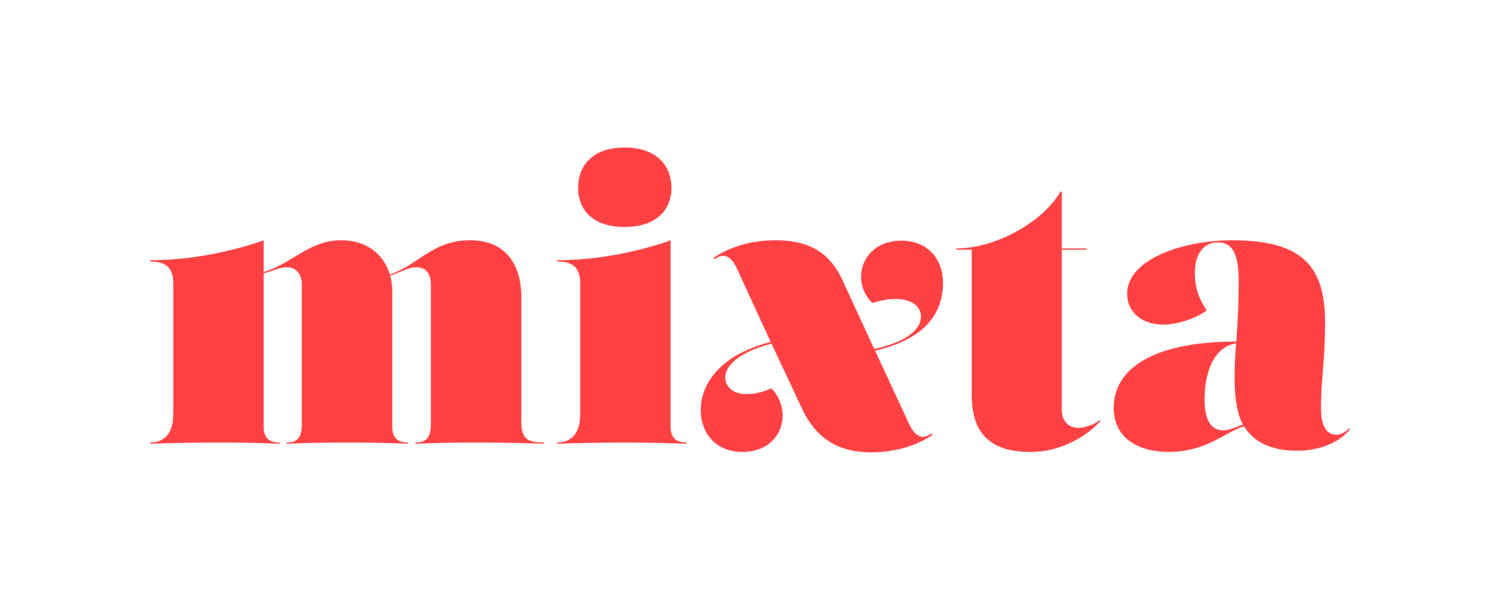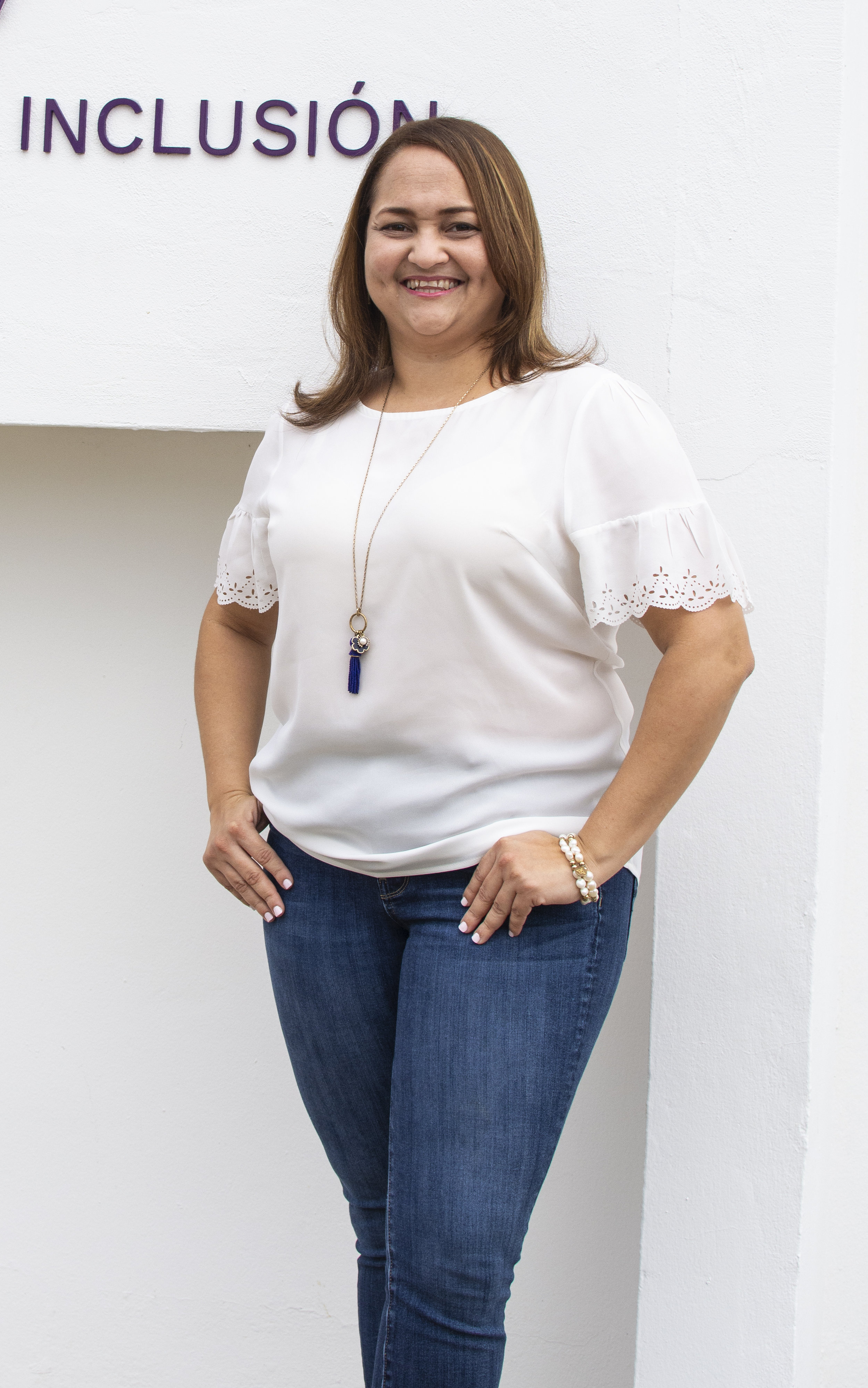Mencia Estevez and Shakira Vásquez on Fighting for Inclusion
Mencia y Shakira en Búsqueda de la Inclusión
Surely it might seem very strange to find a person with autism or Down syndrome in any job or doing something like buying groceries at the supermarket without help. And although I do not deny the difficulties they may have in their neurodevelopment, it is also true the lack of representation or interactions with them is influenced by the few opportunities that are given to them to be able to integrate into a society that is standardized.
We treat them as "special" children or adolescents, they're not usually accepted in all educational centers, and the parents themselves seem to be afraid of them. Yes, it is not easy, especially for the families, but thankfully, there is a team of people led by two Dominican women who understand that having difficulty either in your body or mind, does not mean that you should be banned, abandoned in oblivion and relegated from having daily experiences like the rest of humanity.
Mencia Estevez (Master in Clinical Neuropsychology) and Shakira Vásquez (Pediatrician specializing in Neurodevelopmental Disorders and Down Syndrome) had a common dream: to help children and adolescents with neurodevelopmental difficulties to be included in society.
Both had the desire to create an institution that’s dedicated to improving the quality of life, both for families and for children and adolescents who have some neurodevelopmental disorder. They wanted something completely new and different that was aligned with their vision. After working with various institutions and sitting down to put together a work plan, they finally opened the Centro de Intervención Incluyo in Santiago, Dominican Republic.
Mencia Estevez
According to Mencia, it is a matter of inclusion and that we understand that, in the end, we are all unique. In the same way, she says that they want is "to make our children as functional as possible and that they are included in the family, in school, in society, etc. It is not worth giving the infant therapy all his or her life if he or she is not included within society."
The founders emphasized how they work by objectives, and as Shakira explains, multidisciplinary and integral work is carried out where each patient is seen as a whole. A plan based on goals is carried out, then reevaluated, and work is continued according to whether or not the goal that was proposed at the beginning has been reached. Mind you; we know that they are not going to "magically heal," and that for parents sometimes it is an uphill battle. But as Shakira says: "We wanted a place where families felt confident in bringing their children and that did not require for them to move from place to place for every different therapy or treatment. Here we integrate everything."
Among the services offered are: evaluation and diagnosis, occupational therapy, psychopedagogy, early intervention, speech and language treatment, neurocognitive rehabilitation, clinical monitoring, among others. They work according to each particular case. "Our greatest interest is that they are not only seen as that child with autism or Down syndrome but that we see them from a perspective that this is a person and that he or she can be included in any environment," says Shakira.
In the same way, the therapists are able to go to schools to take care of patients with some disorders, giving a wider range of service. Mencia also highlights that the added value of the center is made up of its staff of collaborators: "Our team is a group of people who like what they do and believe in the project, and it is essential for us to feel passion for this."
Highlighting the inclusion part of the project, they have a Continuing Education program, prepared by the Center which offers specialized talks for parents and professionals. In this way, not only do they care about the patient's development, but they include both families and other entities of society.
To get in touch with the Centro Incluyo, you can do so through social networks as Centro Incluyo or by phone at 809-734-5834. Their hours are from 8:00 a.m. to 8:00 p.m., Monday through Friday, and Saturdays from 8:00 a.m. to 12:00 p.m.
De seguro te parecerá muy extraño encontrar a una persona con autismo o síndrome de Down en cualquier puesto laboral, o haciendo algo tan cotidiano como la compra del supermercado sin ayuda. Y aunque no niego las dificultades que puedan tener en su neurodesarrollo, también es cierto que influyen las pocas oportunidades que se les dan para poder integrarse a una sociedad que está estandarizada.
Los tratamos como niños o adolescentes "especiales", no suelen ser aceptados en todos los centros educativos, y los mismos padres parecieran que les tienen miedo. Sí, no es fácil, en especial para las familias, pero para ello existe un grupo de personas lideradas por dos mujeres dominicanas que entienden que tener una dificultad ya sea en tu cuerpo o mente, no significa que debas ser baneado, abandonado en el olvido y relegado de tener experiencias cotidianas como el resto de la humanidad.
Mencia Estevez (Maestría en Neuropsicología Clínica) y Shakira Vásquez (pediatra especializada en Trastornos del Neurodesarrollo y Síndrome de Down) tenían un sueño en común: ayudar a los niños y adolescentes con dificultades en el neurodesarrollo a ser incluidos dentro de la sociedad.
Ambas tenían el deseo de crear una institución que se dedicara a mejorar la calidad de vida, tanto de las familias como de los niños y adolescentes que tienen alguna alteración del neurodesarrollo. Ellas querían algo diferente, que estuviera marcada con su propia visión. Luego de trabajar en distintas instituciones y sentarse a armar un plan de trabajo, abren finalmente el Centro de Intervención Incluyo en Santiago, República Dominicana.
Según Mencia es un tema de inclusión y de que entendamos que al final todos somos únicos. De igual manera comenta que quieren "lograr que nuestros chicos sean lo más funcionales posible y que estén incluidos en la familia, en el colegio, en la sociedad, etc. No vale de nada darle al infante terapia toda la vida si no se logra incluirlo dentro de la sociedad."
Las fundadoras resaltan que trabajan por objetivos, y como explica Shakira, se realiza un trabajo multidisciplinar e integral donde a cada paciente se le ve como un todo. Se realiza un plan basado en metas, se reevalúa, y se sigue trabajando según se haya o no alcanzado lo propuesto al inicio. Ojo, sabemos que no se van a "curar mágicamente", y que para los padres a veces resulta un poco cuesta arriba, pero Shakira dice: "queríamos un lugar donde las familias se sintieran confiadas en traer a sus niños, que no estuvieran en un vaivén de que en un sitio se le daba terapia y en otro se trataban otros temas. Aquí lo integramos todo."
Shakira Vásquez
Dentro de los servicios que ofrecen están: evaluación y diagnóstico, terapia ocupacional, psicopedagogía, atención temprana, terapia del habla y el lenguaje, rehabilitación neurocognitiva, seguimiento clínico, entre otras. Las mismas son trabajadas según cada caso particular. “Nuestro mayor interés es que no sean solo vistos como ese niño tiene autismo o síndrome de Down, sino que lo veamos desde la concepción de que es persona y que pueda ser incluido en cualquier ambiente”, asegura Shakira.
De igual manera, los terapeutas se trasladan a algunos colegios para atender a los pacientes con algún trastorno, dando un servicio más amplio. Mencia también resalta que el valor agregado del centro lo conforma su plantilla de colaboradores: “Nuestro equipo es un grupo de personas al que le gusta lo que hacen y creen en el proyecto, y es muy importante para nosotras que sientan pasión por esto.”
Resaltando la parte de la inclusión dentro del proyecto, tienen un programa de Educación Continuada, donde desde el Centro se preparan charlas especializadas para los padres y profesionales. De esta manera, no sólo se preocupan por el desarrollo del paciente, sino que incluye tanto a las familias como a otros entes de la sociedad.
Para comunicarse con el Centro Incluyo pueden hacerlo a través de las redes sociales como Centro Incluyo o al teléfono 809-734-5834. El horario es de 8:00 a.m. a 8:00 p.m., de lunes a viernes, y los sábados de 8:00 a.m. a 12:00 p.m.
Dahiana studied journalism in Spain and works as a multimedia producer in Santiago, Dominican Republic. She is a writer, photographer, traveler, GLR and human, and she loves to tell stories through different media and platforms like her blog. / Dahiana estudió Periodismo en España y labora como productora multimedia en Santiago, República Dominicana. Es una escritora, fotógrafa, viajera, GLR y humana, y le encanta contar historias a través de distintos medios y plataformas como su blog.






